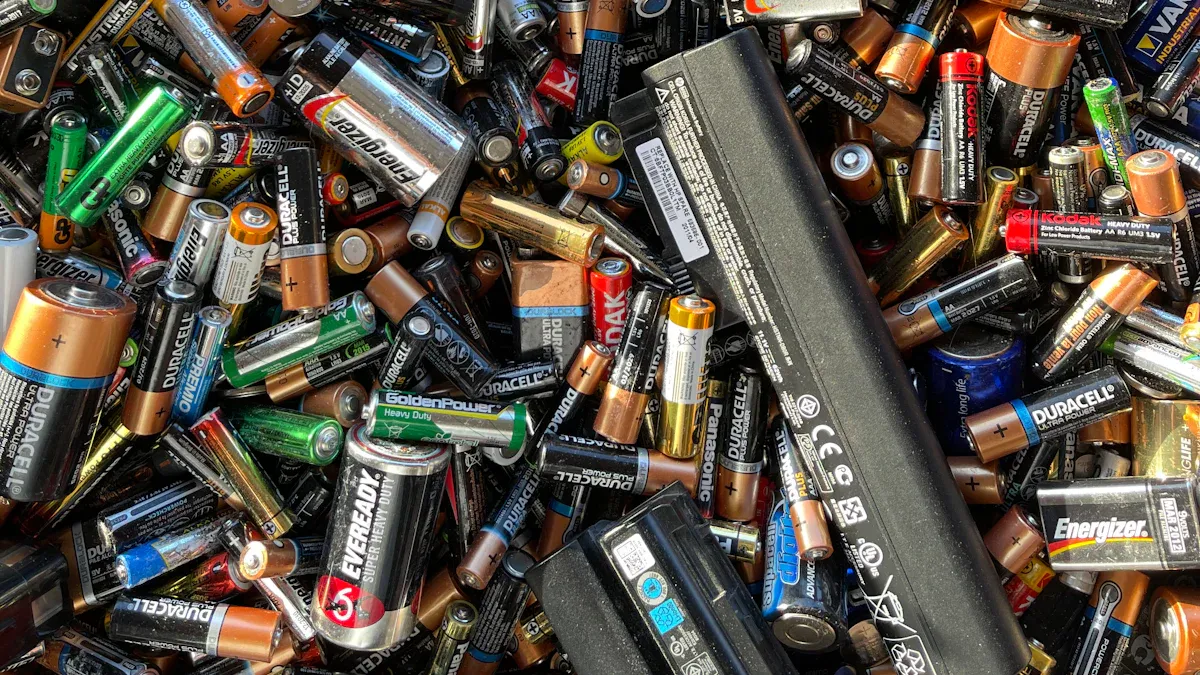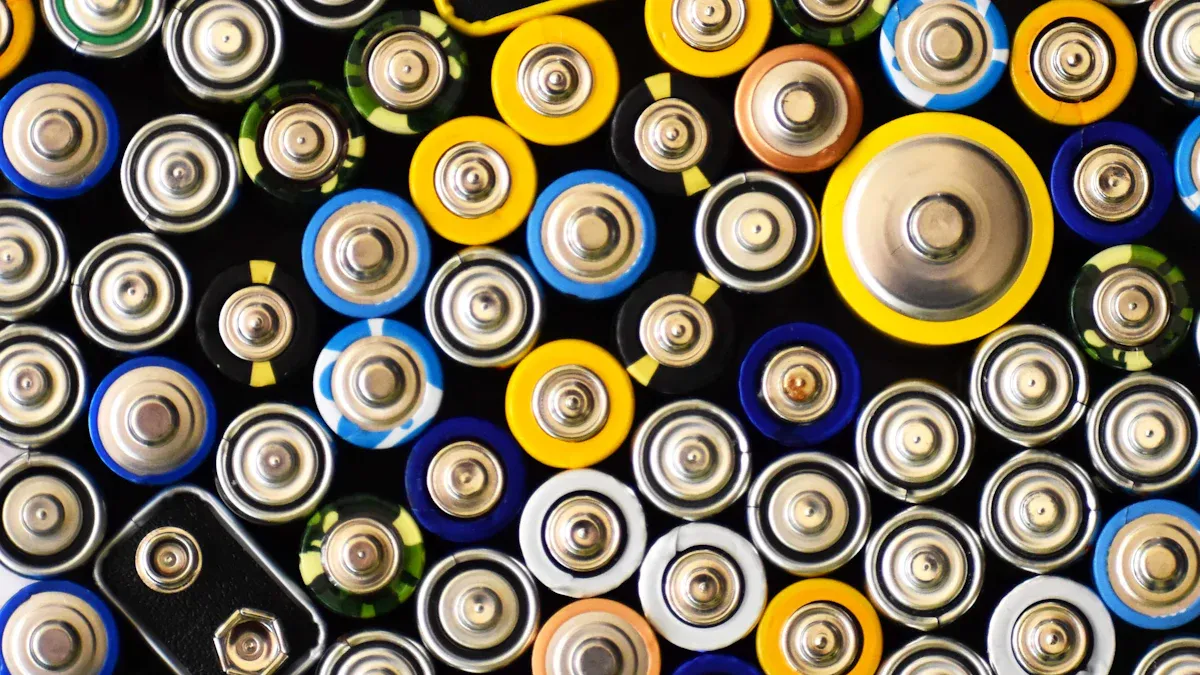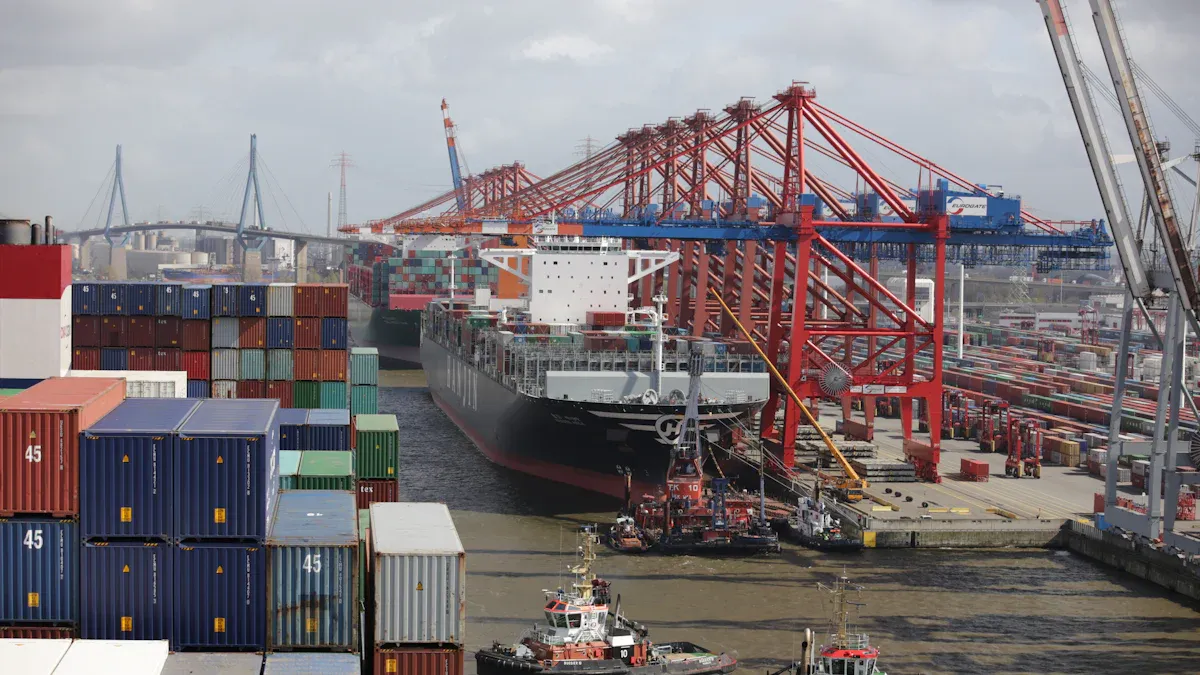
I understand importing Alkaline Battery products into any market demands a thorough grasp of customs procedures, applicable duties, and complex regulations. This guide offers businesses a comprehensive roadmap. It ensures compliance, avoids costly delays, and facilitates the smooth entry of your shipments.
Key Takeaways
- Use the correct HS codes and complete all documents. This helps your alkaline battery shipments move through customs without problems.
- Know the safety rules and environmental laws for batteries. This ensures your products are safe and follow all regulations.
- Work with experienced customs brokers and good suppliers. They help you avoid mistakes and make importing easier.
Understanding Alkaline Battery Classification and Identification

What Defines an Alkaline Battery?
When I talk about an Alkaline Battery, I refer to a specific type of primary battery. These batteries are distinct due to their chemical composition. They use zinc as the anode, manganese dioxide as the cathode, and potassium hydroxide (KOH) as the electrolyte. This potassium hydroxide solution is less corrosive than acidic alternatives, which is a key characteristic. The interaction between these electrodes and the electrolyte facilitates energy production through ion movement.
Physically, I observe Alkaline Batteries in standard cylindrical forms, like AA, AAA, C, and D sizes, which are interchangeable with zinc-carbon batteries. They also come in button forms. A cylindrical cell typically has a stainless steel can that serves as the cathode connection. The positive electrode mixture is a compressed paste of manganese dioxide with added carbon for conductivity. The negative electrode consists of a zinc powder dispersion within a potassium hydroxide electrolyte gel. A separator, often cellulose or a synthetic polymer, prevents electrode contact and short-circuiting. I also notice a plastic gasket for leakage resistance and an outer wrap of aluminum foil or plastic film for protection and labeling.
Critical Role of Harmonized System (HS) Codes for Alkaline Battery Imports
I cannot overstate the importance of Harmonized System (HS) codes for importing Alkaline Batteries. These codes are international product classification numbers that customs authorities use worldwide. For example, I often see codes like 85061000 for “BATTERY, ALKALINE, C, 1.5V” or “BATTERY, ALKALINE, D, 1.5V.” More specifically, I know that “Manganese dioxide cells and batteries, alkaline” can fall under 85061018 (excluding cylindrical cells) or 85061011 (for cylindrical cells).
Using the correct HS code is absolutely critical. An incorrect HS code leads to inappropriate import duties and taxes because different products have varying rates. I have seen how an incorrect code can also result in non-compliance with specific regulatory requirements and restrictions. This can cause significant delays and unexpected costs during customs clearance. I always ensure my team verifies these codes meticulously to avoid any pitfalls.
Navigating Customs Procedures for Alkaline Battery Shipments

Essential Documentation for Alkaline Battery Import Clearance
I know that proper documentation is crucial for smooth import clearance. I always prepare a comprehensive set of documents. This includes the commercial invoice, which details the goods, their value, and terms of sale. I also need the packing list, showing the contents of each package. The bill of lading or air waybill confirms the shipping contract and ownership. A certificate of origin verifies the country where the Alkaline Battery products were manufactured. Furthermore, I often require safety data sheets (SDS) for batteries, which provide critical information on handling and potential hazards. Sometimes, I also need specific permits or licenses, depending on the destination country’s regulations for battery imports.
The Alkaline Battery Import Declaration Process
Once I have all my documents ready, I proceed with the import declaration. I typically submit these documents electronically to the customs authority through a customs broker. This declaration includes the HS codes, value, origin, and quantity of the goods. I ensure all information is accurate to prevent delays. Customs then reviews my declaration. They check for compliance with import regulations and calculate duties and taxes. This step is critical for getting my shipment approved for entry.
What to Expect During Customs Clearance and Inspection of Alkaline Battery Cargo
During customs clearance, I anticipate a thorough review of my submitted declaration and documents. Customs officials might conduct a physical inspection of the cargo. They verify the goods match the declaration. They also check for proper labeling and packaging. If they find discrepancies or concerns, they might hold the shipment for further investigation. I always prepare for this possibility. A smooth inspection means my cargo moves quickly through customs.
Calculating Duties, Taxes, and Fees on Alkaline Battery Imports
Understanding Import Duties (Tariffs) for Alkaline Battery Products
I know import duties, or tariffs, are a significant cost component for Alkaline Battery products. Governments impose these taxes on imported goods. They aim to generate revenue and protect domestic industries. The specific duty rate depends on several factors. I always check the Harmonized System (HS) code for the Alkaline Battery. The country of origin also plays a role. Trade agreements between countries can reduce or eliminate these duties. I find it crucial to accurately classify my products. An incorrect HS code can lead to overpayment or penalties. I always verify the applicable tariff rates before shipping.
Applying Value Added Tax (VAT) / Goods and Services Tax (GST) to Alkaline Battery Imports
I also account for Value Added Tax (VAT) or Goods and Services Tax (GST). Most countries apply these consumption taxes to imported goods. Customs authorities typically calculate VAT/GST on the total value of the import. This includes the cost of the goods, freight, insurance, and any import duties already paid. The rates vary significantly by destination country. I ensure I understand the local VAT/GST regulations. This helps me accurately price my Alkaline Battery products for the market.
Identifying Other Potential Fees for Alkaline Battery Shipments
Beyond duties and VAT/GST, I prepare for other potential fees. Customs processing fees are common. These cover the administrative costs of clearing my shipment. Storage fees can apply if my cargo is delayed at the port or airport. Inspection fees might arise if customs decides to physically examine the goods. I also budget for customs brokerage fees. A good broker helps navigate complex procedures. These additional costs can add up. I always factor them into my overall import budget.
Key Regulations and Compliance for Alkaline Battery Imports
Adhering to Safety and Performance Standards for Alkaline Battery Products
I always prioritize safety and performance when importing batteries. My products must meet stringent international standards. For instance, I look for compliance with:
- IEC 60086-1: Primary Batteries – General
- IEC 60086-2: Batteries – General
- UL 2054: Safety of Commercial and Household Battery Packs
These standards ensure the batteries function safely and reliably. They confirm the product meets expected quality and safety benchmarks.
Mandatory Labeling Requirements for Alkaline Battery Packaging
Proper labeling is non-negotiable. I ensure all packaging clearly displays essential information. This includes:
- Warnings or cautions for safe handling and disposal
- Battery’s voltage and capacity information
- Manufacturer’s name and contact information
- Battery recycling labels In the USA, I know specific rules apply to button cell or coin battery packaging. These rules define where warnings must appear on the principal and secondary display panels. For the EU, I ensure CE marking and QR codes are present on the packaging.
Environmental Regulations and Recycling Obligations for Alkaline Battery Waste
I take environmental responsibility seriously. I comply with regulations designed to minimize battery impact. The EU’s New Batteries Regulation, effective August 17, 2023, is crucial. It aims to improve battery life cycle management and will replace the older Batteries Directive in 2025. I also adhere to the WEEE Directive. This directive promotes the recovery of valuable raw materials from e-waste and used batteries, supporting a circular economy.
Transportation Regulations for Shipping Alkaline Battery Products (IATA, IMDG, DOT)
Shipping batteries requires strict adherence to transportation regulations. I follow guidelines from IATA for air cargo, IMDG for sea freight, and DOT for ground transport. These rules ensure the safe movement of all battery types, including Alkaline Battery products, preventing hazards during transit. I always verify proper classification and packaging for each shipment.
Best Practices and Avoiding Pitfalls in Alkaline Battery Importing
The Advantage of Partnering with Experienced Customs Brokers for Alkaline Battery Imports
I find partnering with experienced customs brokers invaluable for importing. They handle all necessary paperwork accurately and on time, guiding me through the complex customs clearance process. A broker often serves as the Importer of Record, leveraging their established reputation with Customs and Border Protection (CBP). This trust leads to faster processing times and fewer delays. They ensure accurate documentation, tariff classifications, and adherence to import regulations, which significantly reduces my risk of customs-related issues. This allows me to focus on my core business operations.
Conducting Due Diligence on Alkaline Battery Suppliers
I always conduct thorough due diligence on my suppliers. This is critical, especially for batteries containing specific raw materials like nickel, lithium, cobalt, and graphite. I ensure my suppliers have a comprehensive risk management system across their entire supply chain, from extraction to production. They must also maintain a system of control and transparency, identifying all actors up to raw material extraction. I look for adherence to international principles, including the UN Guiding Principles on Business and Human Rights. Suppliers need a documented due diligence policy, independently verified, and a robust management system for traceability.
Staying Updated on Evolving Alkaline Battery Regulatory Changes
I know staying updated on evolving regulatory changes is paramount. I actively engage with industry experts and review independent market analyses to validate my assumptions. Reports like the ‘Global Alkaline Battery Trends’ offer comprehensive analysis, including market dynamics and regulatory shifts. Organizations like UL Solutions also provide valuable insights. They collaborate with regulatory agencies, industry associations, and manufacturers, ensuring their standards align with real-world needs. This proactive approach helps me navigate new compliance regimes and technological advancements effectively.
Partnering with a Reliable Alkaline Battery Manufacturer: Ningbo Johnson New Eletek Co., Ltd.
Why Choose Ningbo Johnson New Eletek Co., Ltd. for Your Alkaline Battery Needs
When I look for a reliable partner in the alkaline battery market, Ningbo Johnson New Eletek Co., Ltd. stands out. They are a professional manufacturer of various battery types. I appreciate their commitment to quality and their extensive operational capabilities. They boast 20 million USD in assets and a 20,000-square-meter manufacturing floor. Over 150 skilled employees work on 10 automatic production lines, all operating under the ISO9001 quality system and BSCI.
Quality Assurance and Environmental Responsibility in Alkaline Battery Production
I prioritize manufacturers who demonstrate strong quality assurance and environmental responsibility. Ningbo Johnson New Eletek Co., Ltd. meets these expectations. Their products are free from Mercury and Cadmium. I know they completely meet EU/ROHS/REACH Directives. Furthermore, their products hold SGS certification. This commitment ensures their batteries meet environmental directives and global safety standards.
Competitive Solutions and Customer-Centric Service for Alkaline Battery Buyers
I find Ningbo Johnson New Eletek Co., Ltd. offers competitive solutions. Their products strike an ideal balance between quality and price. This provides better cost performance for most daily and professional applications. Their batteries show versatility, performing well in both low-drain and high-drain devices. I also see their research and development efforts lead to advancements in energy efficiency and durability. They incorporate sustainable practices in production and packaging, aligning with environmentally conscious consumers. Their robust global distribution network ensures accessibility across Europe, Asia, and the Americas. I also value their ‘High-quality Brand Service,’ which includes comprehensive after-sales support. They are customer-centered, ensuring worry-free cooperation. I can reach them via email at sales@kepcell.com or sales@memna.cn, or by phone at 86 135 86724141. They promise to reply to product inquiries within 24 hours.
I understand successful Alkaline Battery importing demands meticulous attention to customs procedures, accurate duty calculations, and strict adherence to regulations. I achieve seamless market entry by leveraging expert guidance, conducting thorough due diligence, and partnering with reputable manufacturers like Ningbo Johnson New Eletek Co., Ltd. Proactive preparation and continuous monitoring of regulatory landscapes are paramount for my long-term success in this business.
FAQ
What is the most common reason for customs delays with alkaline batteries?
I find incorrect HS codes or incomplete documentation cause most delays. Accurate classification and thorough paperwork are essential.
Do I need special permits to import alkaline batteries?
I often need specific permits or licenses. This depends on the destination country’s regulations. Always check local requirements.
How can I ensure my alkaline battery shipments comply with environmental regulations?
I ensure my products are Mercury and Cadmium-free. I also verify they meet EU/ROHS/REACH Directives and have SGS certification.
Post time: Nov-25-2025




